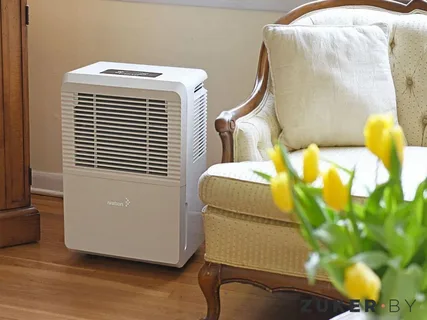Maintaining a healthy indoor environment is essential for both comfort and well-being. Excess humidity can create a breeding ground for mold, mildew, and dust mites—all of which contribute to poor air quality and various health issues. This is where dehumidifiers come into play. In this article, we’ll explore how dehumidifiers improve air quality and prevent mold growth, making them a valuable addition to any home or office.
The Problem with Excess Humidity
When indoor humidity levels rise above 50%, the air becomes damp and uncomfortable. High humidity promotes the growth of mold and mildew, which not only cause damage to walls, furniture, and flooring but also trigger respiratory problems such as allergies and asthma.
Health Risks of Mold Exposure
Mold spores are tiny and can become airborne, making them easy to inhale. Prolonged exposure may lead to symptoms such as:
- Nasal congestion
- Throat irritation
- Eye discomfort
- Skin rashes
- Aggravation of asthma
By controlling humidity, dehumidifiers directly address the root cause of mold formation, thereby reducing these health risks.
How Dehumidifiers Work
Dehumidifiers draw in moist air, remove excess moisture through condensation, and then release the drier air back into the room. Most models automatically regulate humidity to maintain ideal levels between 30% and 50%.
This controlled process helps stabilize the indoor climate, preventing the growth of mold and maintaining a healthier living environment.
Benefits of Using a Dehumidifier
1. Improved Indoor Air Quality
One of the most significant benefits of using a dehumidifier is its ability to enhance air quality. By removing moisture from the air, it minimizes dust mites, mold spores, and other airborne allergens.
2. Prevention of Mold and Mildew
Understanding how dehumidifiers improve air quality and prevent mold growth starts with recognizing their ability to control the environment. A dry indoor atmosphere discourages mold and mildew, particularly in high-risk areas like bathrooms, basements, and kitchens.
3. Protection for Your Home
Aside from health benefits, dehumidifiers also help preserve your home. Wooden furniture, drywall, insulation, and electronics can all suffer from prolonged exposure to excess moisture.
Where to Use Dehumidifiers
Dehumidifiers are especially useful in:
- Basements with poor ventilation
- Laundry rooms and bathrooms
- Areas affected by water damage
- Coastal or humid climates
Placing a dehumidifier in these locations can significantly reduce the likelihood of mold infestations.
Final Thoughts
Knowing how dehumidifiers improve air quality and prevent mold growth can help you make informed decisions about maintaining a healthier home. These appliances not only combat musty odors and visible mold patches but also contribute to a more comfortable and breathable indoor environment. Whether you’re dealing with seasonal humidity or long-term moisture issues, investing in a quality dehumidifier can offer long-lasting protection for both your health and your property.

